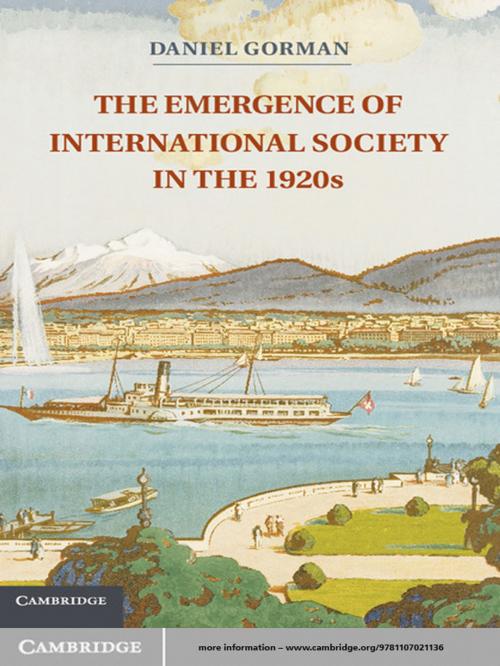The Emergence of International Society in the 1920s
Nonfiction, Social & Cultural Studies, Political Science, Politics, History & Theory, History| Author: | Daniel Gorman | ISBN: | 9781139540124 |
| Publisher: | Cambridge University Press | Publication: | August 20, 2012 |
| Imprint: | Cambridge University Press | Language: | English |
| Author: | Daniel Gorman |
| ISBN: | 9781139540124 |
| Publisher: | Cambridge University Press |
| Publication: | August 20, 2012 |
| Imprint: | Cambridge University Press |
| Language: | English |
Chronicling the emergence of an international society in the 1920s, Daniel Gorman describes how the shock of the First World War gave rise to a broad array of overlapping initiatives in international cooperation. Though national rivalries continued to plague world politics, ordinary citizens and state officials found common causes in politics, religion, culture and sport with peers beyond their borders. The League of Nations, the turn to a less centralized British Empire, the beginning of an international ecumenical movement, international sporting events and audacious plans for the abolition of war all signaled internationalism's growth. State actors played an important role in these developments and were aided by international voluntary organizations, church groups and international networks of academics, athletes, women, pacifists and humanitarian activists. These international networks became the forerunners of international NGOs and global governance.
Chronicling the emergence of an international society in the 1920s, Daniel Gorman describes how the shock of the First World War gave rise to a broad array of overlapping initiatives in international cooperation. Though national rivalries continued to plague world politics, ordinary citizens and state officials found common causes in politics, religion, culture and sport with peers beyond their borders. The League of Nations, the turn to a less centralized British Empire, the beginning of an international ecumenical movement, international sporting events and audacious plans for the abolition of war all signaled internationalism's growth. State actors played an important role in these developments and were aided by international voluntary organizations, church groups and international networks of academics, athletes, women, pacifists and humanitarian activists. These international networks became the forerunners of international NGOs and global governance.















